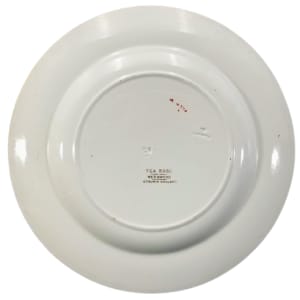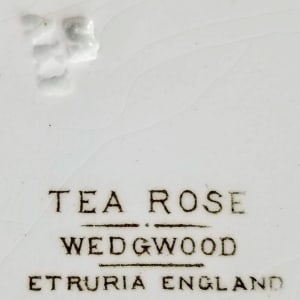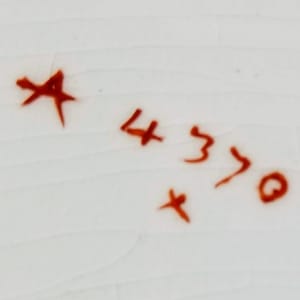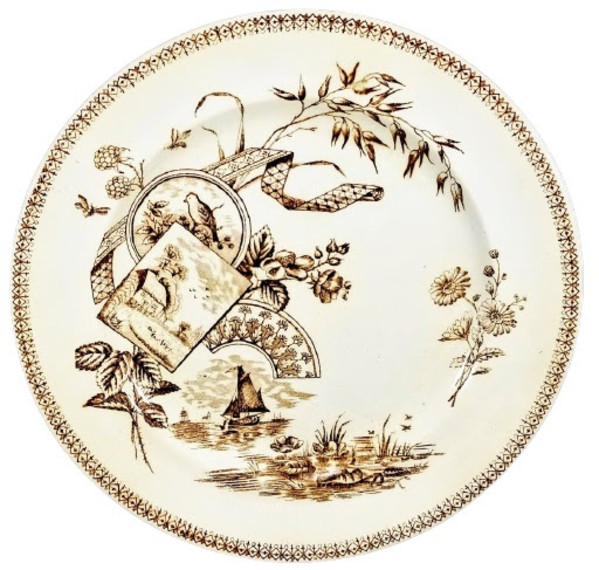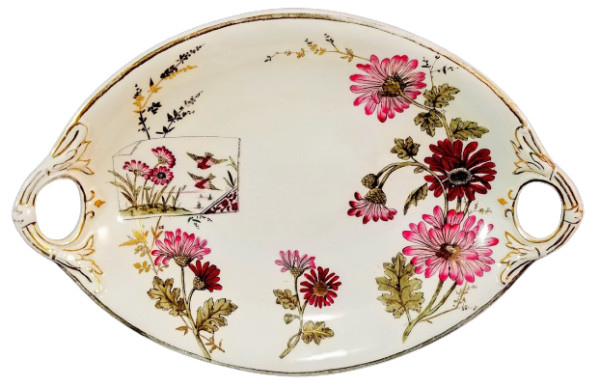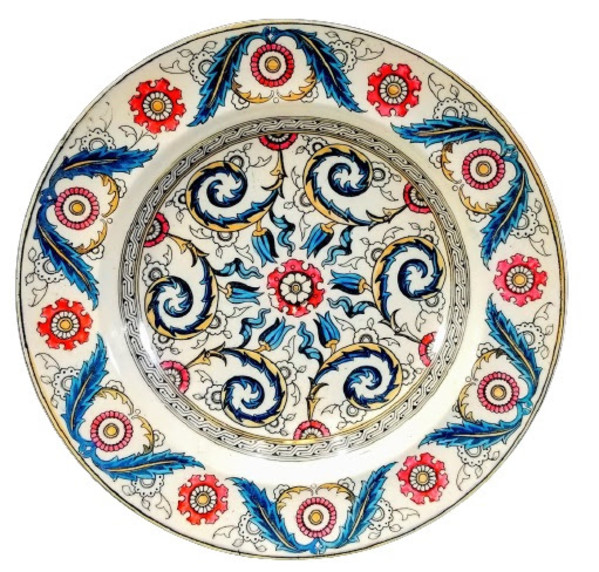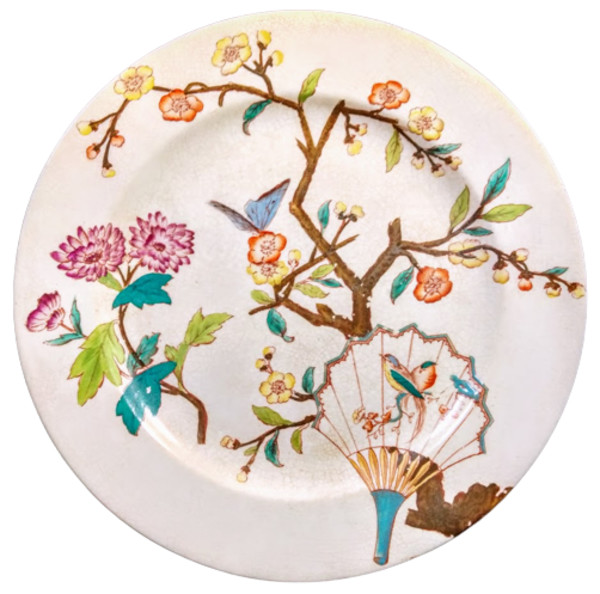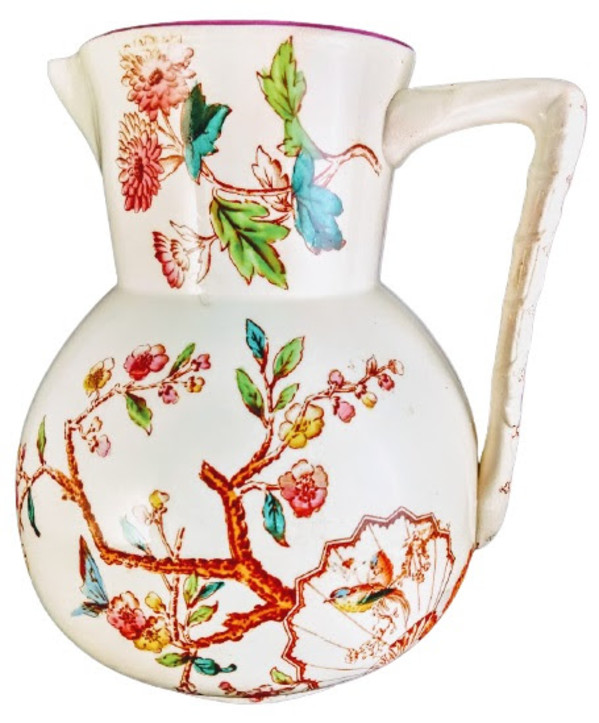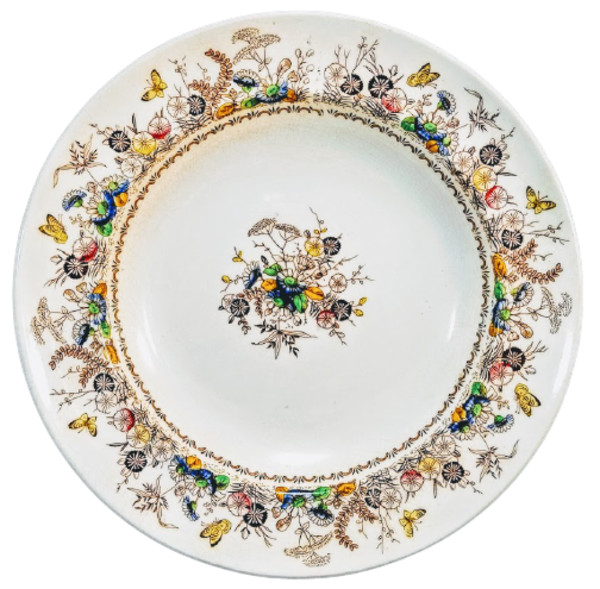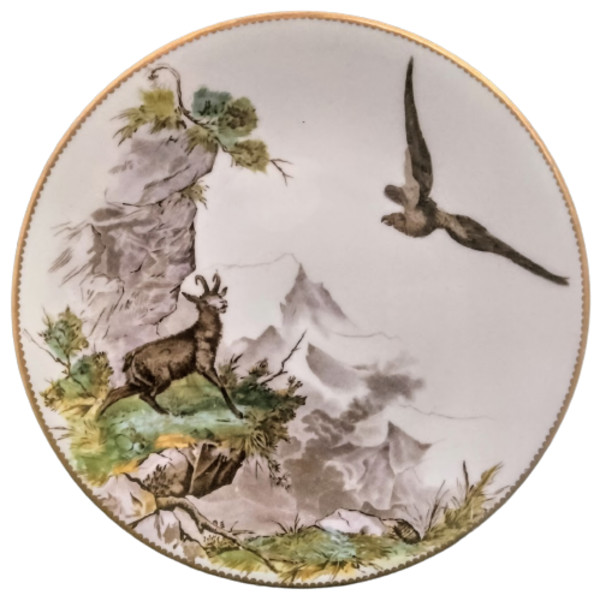- Josiah Wedgwood
- Tea Rose, c. 1891-1900
- Earthenware
-
Not For Sale
Plate, black transfer with polychrome clobbering. Printed and impressed maker's marks for Josiah Wedgwood. Impressed date code indicates a manufacture date of 1896. Red painted pattern number A4370. This pattern features a central image called the ‘Ducks’ design from the ‘Rustic’ series of twelve domestic farmyard scenes attributed to Thomas Allen, c. 1890-1900. This design was used on both tiles and table wares. This 'Tea Rose' pattern derives its name from the border of tea rose blooms and buds on thorny stems with leaves.
Josiah Wedgwood was born in Burslem, Staffordshire, on July 12, 1730, into a family with a long tradition as potters. At the age of nine, after the death of his father, he worked in his family's pottery. In 1759 he set up his own pottery works in Burslem. There he produced a highly durable cream-colored earthenware that so pleased Queen Charlotte that in 1762 she appointed him royal supplier of dinnerware. From the public sale of Queen's Ware, as it came to be known, Wedgwood was able, in 1768, to build near Stoke-on-Trent a village, which he named Etruria, and a second factory equipped with tools and ovens of his own design. At first only ornamental pottery was made in Etruria, but by 1773 Wedgwood had concentrated all his production facilities there. During his long career Wedgwood developed revolutionary ceramic materials, notably basalt and jasperware. After Wedgwood's death in Etruria on January 3, 1795, his descendants carried on the business, which still produces many of his designs.
- Subject Matter: Aesthetic (Animals)
- Collections: Aesthetic Transferware, Josiah Wedgwood

